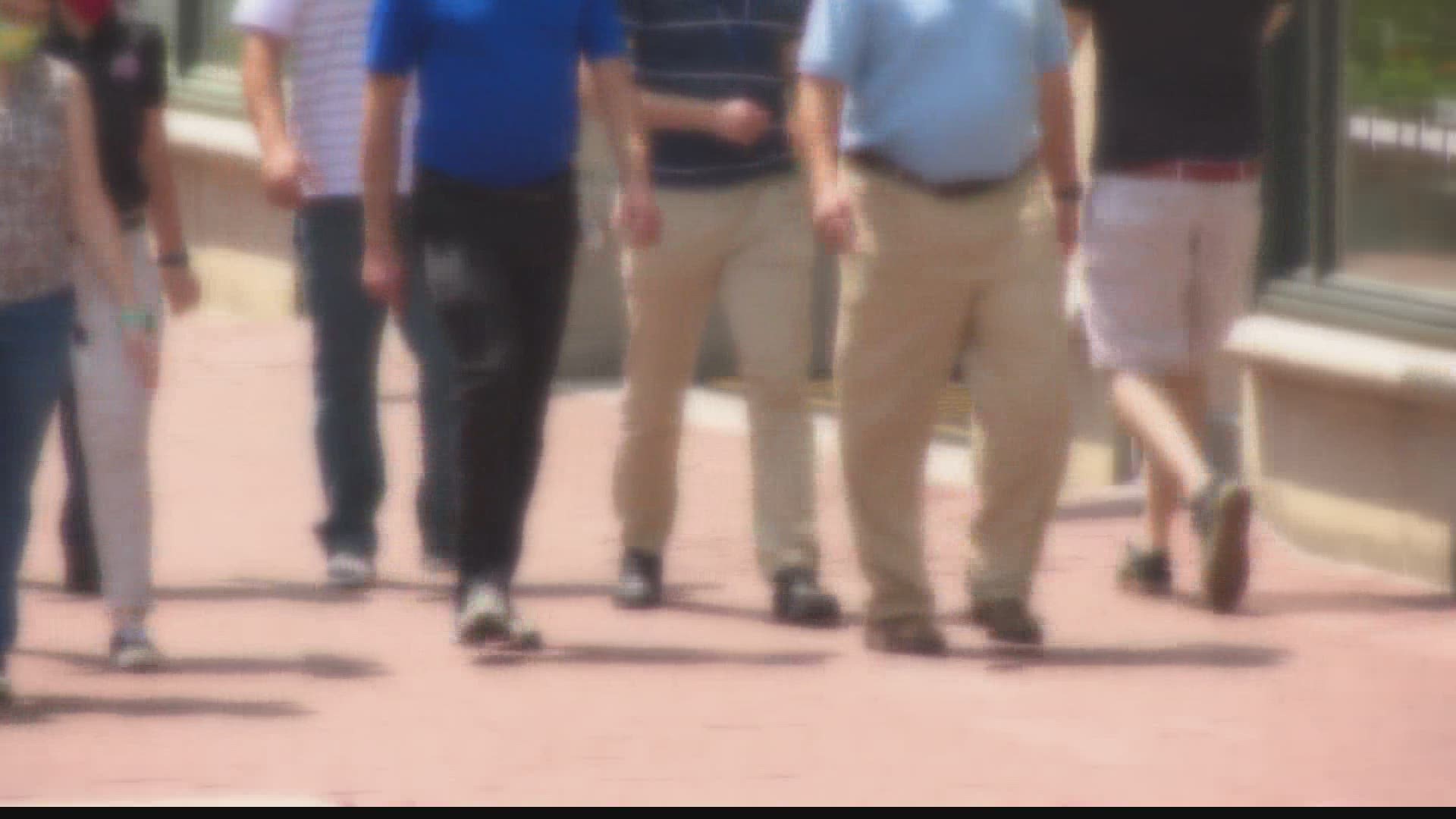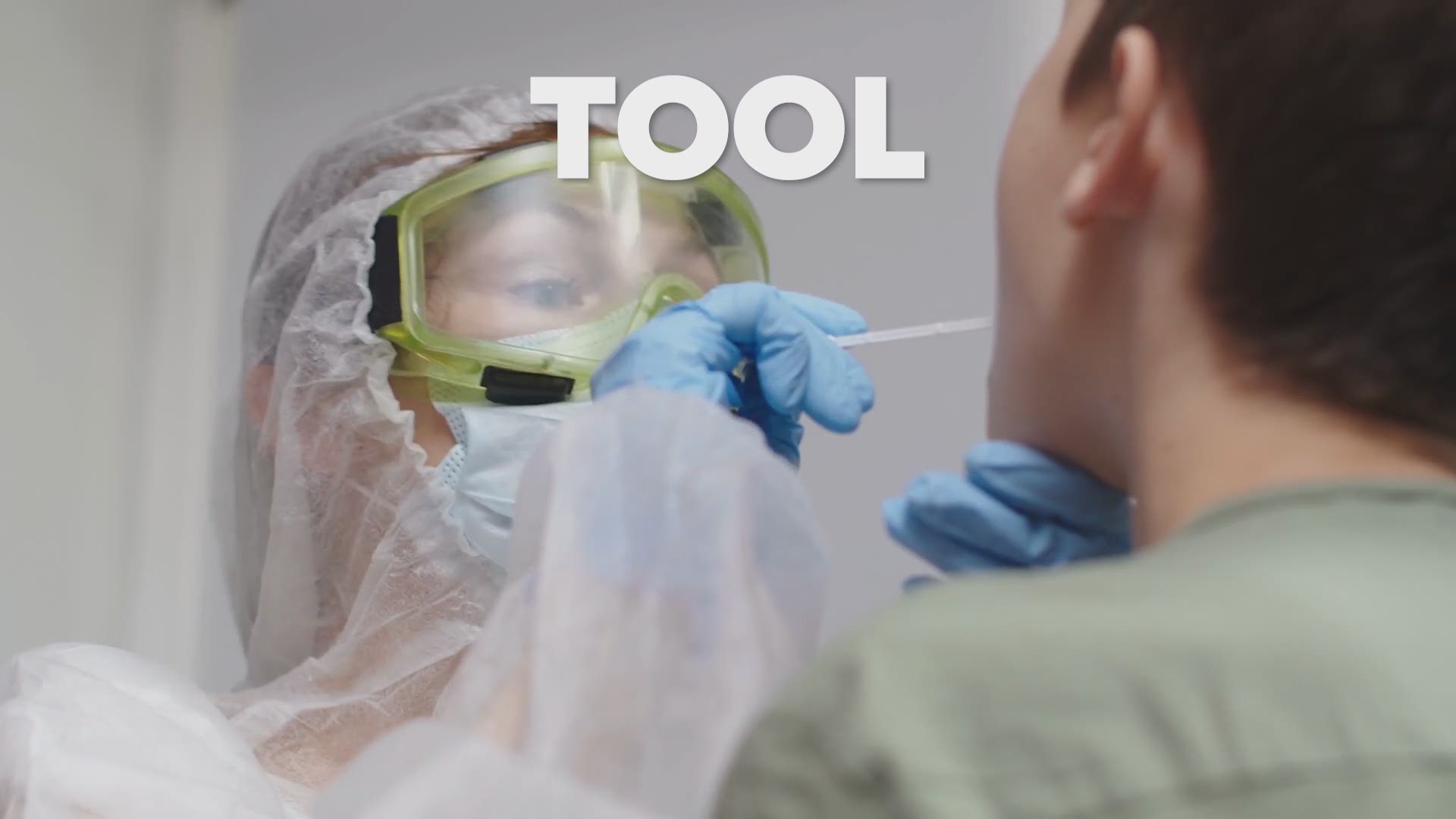INDIANAPOLIS — A critical strategy to help stop the spread of the COVID-19 is getting kicked up a notch in Marion County.
Contact tracers will soon be going door to door to help warn those who might have been exposed to the virus. It's part of a $10 million plan to hire hundreds of workers to help show the growing number of cases.
Sharing time, space and a touch can all naturally occur in any community. But during a pandemic, when, where and who you are with matters in the spread of the coronavirus.
In Marion County, it's never been more important. And that's where contact tracing comes into the picture.
"We've got more people, we're seeing more cases, so we need to take that extra step to make sure we are connecting," said Shandy Dearth of the IU Fairbanks School of Public Health.
RELATED: Indianapolis postponing school, closing bars, other restrictions after increase in COVID-19 cases
Contact tracing works by identifying those infected by the virus and isolating them. The next step is tracking down everyone the infected person has had contact with and getting those people tested and quarantined, too.
The quicker it's done, the better chance to stop the spread.
But in some areas across Indiana, getting cooperation has been hit or miss according to the state health commissioner.
"75% of people who test positive are successfully reached by our contact tracers. There was still a percentage of individuals who test positive who cannot be reached because their phone numbers aren't correct, or who won't respond to the contact tracers," explained Dr. Kris Box, during a COVID-19 update on July 1.
It means as many as 25% - or one-fourth - of those who have tested positive have not been reached for contact tracing.
"We've been working to come up with a plan to do some more aggressive contact tracing," said Dearth.
As part of the partnership between Marion County and the Fairbanks School of Public Health at IUPUI, 300 additional contact tracers will be hired to help break down more barriers. The State Department of Health had already hired as many as 600.
"Right now, the State Department of Health contact tracing solely relies on phone, text, email; and we're actually going to be doing some in the field work going door to door to some of these cases that we haven't been able to connect with," Dearth told 13 Investigates.
The plan calls for hiring individuals living within specific Hispanic and Burmese communities to help remove language barriers. Dearth calls it "neighbors helping neighbors."
At the same time, health experts want to lessen the worry of those asked to quarantine by linking individuals to social services programs.
"We recognize that we need to enable people to be able to stay home, so maybe they need to be connected to a food bank or some other kind of social service; we can help them do so," said Dearth.
The field crews will receive training from the Johns Hopkins University contact tracing program. Workers will also get safety and security classes.
Project leaders in Indianapolis will also team up with counterparts in Baltimore, Maryland so both cities can share with the other about what's effective and working.


